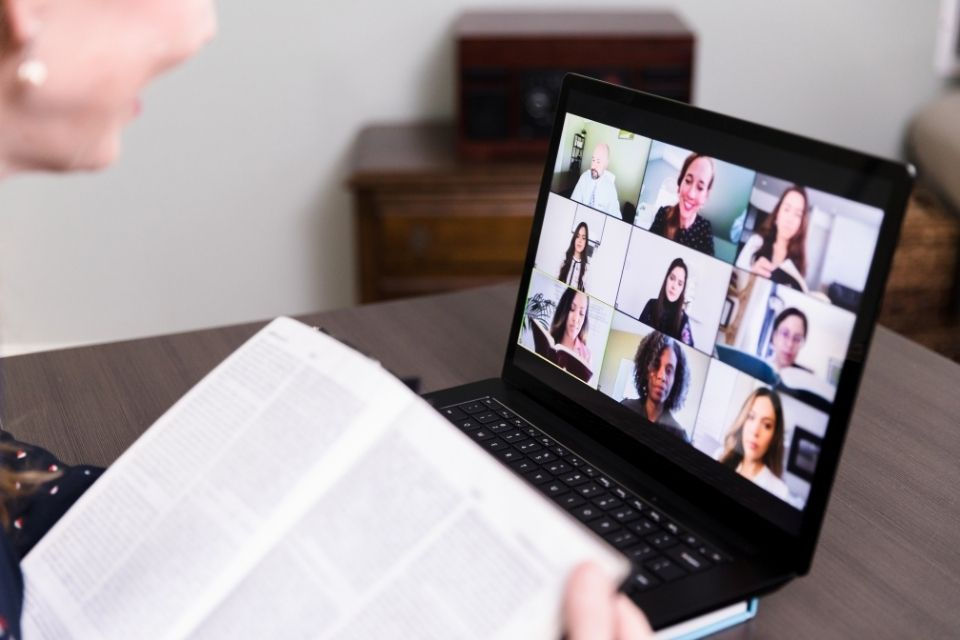Beyond the Screen: How Virtual Field Trips & Guest Speakers Are Redefining Learning
- Bismaya Ranjan
- Sep 8, 2025
- 4 min read

The traditional classroom is a powerful space, but its walls once served as a physical barrier, limiting students to the immediate world around them. Today, that barrier is being dismantled by technology, allowing educational institutions to transport students across continents and time, and to introduce them to experts they could never have met in person. Video conferencing, once a tool for business meetings, has become a dynamic gateway for learning, giving rise to virtual field trips and guest speakers. These solutions are not just digital substitutions for the real thing; they are innovative, powerful tools that are fundamentally redefining what's possible in education.
At QudraGen, we provide integrated video conferencing solutions that are not only robust and reliable but also designed to create truly immersive and secure learning environments. We believe that technology should empower educators, and our smart classroom solutions are built to turn ambitious ideas into reality.
Here's how virtual field trips and guest speakers are transforming the educational landscape.
Bringing the World into the Classroom
Traditional field trips are often logistical and financial nightmares. They require extensive planning, transportation costs, permission slips, and are often limited to local destinations. Virtual field trips, however, eliminate these constraints entirely.
Geographic and Temporal Freedom: A history class can tour the Roman Colosseum in the morning and explore the International Space Station by the afternoon. A biology lesson can take students on a deep-sea dive to a coral reef, or a chemistry class can get a live, behind-the-scenes tour of a modern lab. This level of access exposes students to cultures, ecosystems, and historical sites they might never have the opportunity to visit otherwise.
Safety and Accessibility: Virtual field trips remove safety concerns and logistical barriers, making them inclusive for all students, including those with physical disabilities, health issues, or socioeconomic limitations. This ensures that every student, regardless of their circumstances, has an equal opportunity to experience enriching educational content.
Enhanced Engagement and Retention: Studies have shown that learning in a virtual environment can improve comprehension and retention. Interactive, 360-degree videos and augmented reality experiences provide a multi-sensory learning experience that is far more engaging than a textbook. When students can "walk" through a prehistoric cave or "stand" on the deck of a historic ship, the subject matter comes alive, making the lesson more memorable.
Connecting Students with Real-World Expertise
Guest speakers have long been a staple of education, but their reach was often limited to local professionals. Video conferencing shatters this limitation, allowing educators to bring in experts from anywhere in the world.
Career Exposure and Inspiration: Imagine a high school science class speaking directly with a NASA engineer, a literature class discussing a novel with its author, or a computer science student getting career advice from a software developer at a tech giant. These interactions provide students with invaluable real-world context and expose them to career paths they may not have even known existed.
Building Connections to the Curriculum: A virtual guest speaker can provide a fresh perspective on a topic, bridging the gap between theoretical knowledge and practical application. An economist can explain current market trends in real-time, or a journalist can discuss the ethics of reporting on a breaking news story. This helps students see the relevance of their classroom learning to the world outside of school.
Interactive and Dynamic Learning: Unlike a passive video, a live virtual guest speaker allows for real-time Q&A sessions. Students can ask their own questions, leading to a more organic and personalized learning experience. This active participation promotes critical thinking and encourages students to take ownership of their learning.
The Role of Technology in a Seamless Experience
To make these experiences truly transformative, the underlying technology must be reliable and easy to use. This is where QudraGen's expertise comes in.
Robust Video Conferencing Platforms: A seamless virtual field trip or guest speaker session requires a video conferencing solution that can handle high-resolution video and audio without lag or interruptions. Our solutions are built on a foundation of robust infrastructure design to ensure a flawless experience every time.
Integrated Smart Classroom Solutions: The experience extends beyond the computer screen. Smart classrooms integrate video conferencing with interactive whiteboards, smart displays, and audio systems. This allows the entire class to participate and interact with the virtual content as a group, fostering a collaborative learning environment.
Secure and Safe Connections: Educational institutions have a paramount responsibility to protect student data and ensure a safe online environment. Our solutions are built with enterprise-grade security, including secure Wi-Fi and comprehensive access controls, to protect against unauthorized access and cyber threats, ensuring that virtual interactions are always secure.
The Future of Learning is Limitless
The integration of virtual field trips and guest speakers represents a paradigm shift in education. It is moving learning from a localized, instructor-led model to a global, student-centric, and experiential one. By leveraging powerful video conferencing and smart classroom technologies, educators can inspire curiosity, foster critical thinking, and prepare students for a future where adaptability and global awareness are more important than ever. The world is no longer just outside the classroom; it's waiting to be explored, one virtual connection at a time.


Comments